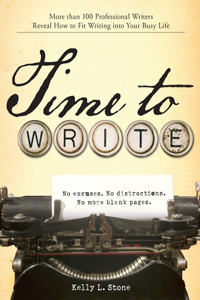Think it’s hard being a writer? Try being the best friend of a writer! My BFF, Danielle, reads everything I write before anyone else. She is joining the Waterworld Mermaids today to give us her side of the story.
Brief History: D and I have known each other since we were five years old, but we’ve been BFFs for the last 16 years. I live in Arlington, VA, while D is up in Pittsburgh. We have many differences, but we do share the same sensibilities regarding tanning (always wear SPF), Nora Roberts (we heart her), Pittsburgh sports teams (they’re awesome) and the movie Newsies (yay!).
Warning: D and I have a tendency to be silly and go off topic. Enjoy!
Kerri: Do you know we’ve been BFFs for 16 years?
BFF: OMG, we are that old already? Those years have been filled with some crazy times, haven’t they?
Kerri: IKR! When did you start reading romance novels?
BFF: I think it all began when you MADE me read a Nora Roberts trilogy. I think it was the “Born In” trilogy. And if I remember correctly, I had to read it so I would be educated when reading what you would write someday. You are bossy like that.
Kerri: By “bossy” do you mean “talented”?
BFF: Ummm. Sure.
Kerri: What are you reading right now?
BFF: Well, I am reading two books right now and one of them is the final book of the Nora Roberts wedding series, Happily Ever After.
Kerri: Ah Nora!
BFF: I have to admit I did not want to start it as I did not want the story to end. She has a way of having you fall in love with her characters.
Kerri: She’s the best!
BFF: Kinda like someone else I know.
Kerri: Who?
BFF: You know I love your characters but you are not published… YET!
Kerri: What is your favorite thing I ever wrote?
BFF: Ohhh, I love that short story about the girl sitting on the dock with her legs outstretched…what’s the title?
Kerri: I hate that story!
BFF: Shhhhh! I also loved your story set at Christmas and the ideas for your Halloween Story. Now that I think about it, you’ve written a whole lot, haven’t you. And I LOVE everything you have written about Steelers Nation! Black and Gold represent.
Kerri: Go Steelers!
BFF: IKR!
Kerri: We better have football season this year!
BFF: Heinz Field is prepared.
Kerri: How do you stay objective when I ask you to edit my writing?
BFF: It is hard sometimes, but usually I just let myself get into whatever I’m reading. It’s your writing and has your voice, which makes it easy to read. Commenting is comfortable, just like chatting on the phone. Plus, I know you love when I ask you for more details and you won’t get mad at me if I give you advice. Or so I think.
Kerri: You are a fan of “details” in books. [Kerri is rolling her eyes.]
BFF: You have so many great details to share. I can only imagine what it takes to put a whole story together from start to finish. I am here to remind you to describe the weather or the feeling someone has at a certain moment because I want to know as a reader. But readers can be greedy and sometimes books leave us wanting more.
Kerri: How do you feel when I get rejected?
BFF: Like I want to kick the $*!@ out of the person who rejected you!!!
Kerri: Right!
BFF: But really I just want be there to tell you to keep going, take their advice and run with it. I know it is hard to be rejected but don’t let anyone stop you from your dreams. If that one person does not like your book – their loss.
Kerri: When I am rejected or having a bad writing day, I like to send “I suck” to you embedded in song lyrics, a poem or in all caps. Which do you prefer?
BFF: I love the songs! But I HATE when you say you suck. Ooooo it makes me soooo mad. You do not suck! [Kerri imagines D is now rolling her eyes.]
Kerri: Te-he. Do you think I should use a pseudonym when I get published?
BFF: No way, you have an awesome name.
Kerri: Thanks, boo. What do you think I should wear to my first book signing?
BFF: Something with glitter, of course.
Kerri: That’s a given. How do you feel when I base a character, situation or trait on you?
BFF: I think it can be fun. I assume you take some liberties on the details but it can be interesting to see how someone sees you from the outside. I also love the situations because I think back to those times, even if they are tough times to relive. It has to be harder for you to relive tough times though.
Kerri: It has its moments of suck-a-tude.
BFF: Oooo good word!
Kerri: Thanks – I just made that up! What advice do you have for other BFFs of writers?
BFF: I would say, hang on for the ride. It can be a truly fun, and at times, scary rollercoaster. I think anyone who has a friend, family, or loved one in the arts knows that there are high highs and low lows and it is our job and responsibility to be there through it all. And it can be a lot of fun living vicariously through our friends.
Kerri: Okay, time for our final question. What do you want to do when I finally get published?
BFF: Remember when I always said I wanted to be your maid when you were rich and famous? Ha-ha, memories. When you get published I think we should go to the beach or some fun trip. You and I have had some great adventures and who knows it may inspire your next best seller.
Kerri: I think we should go to Kennywood! [Amusement Park in Pittsburgh]
BFF: Fright Nights at Kennywood!
Kerri: Weeeeee! Thank you for joining us today, Danielle.
BFF: WOW! Now I am famous!









